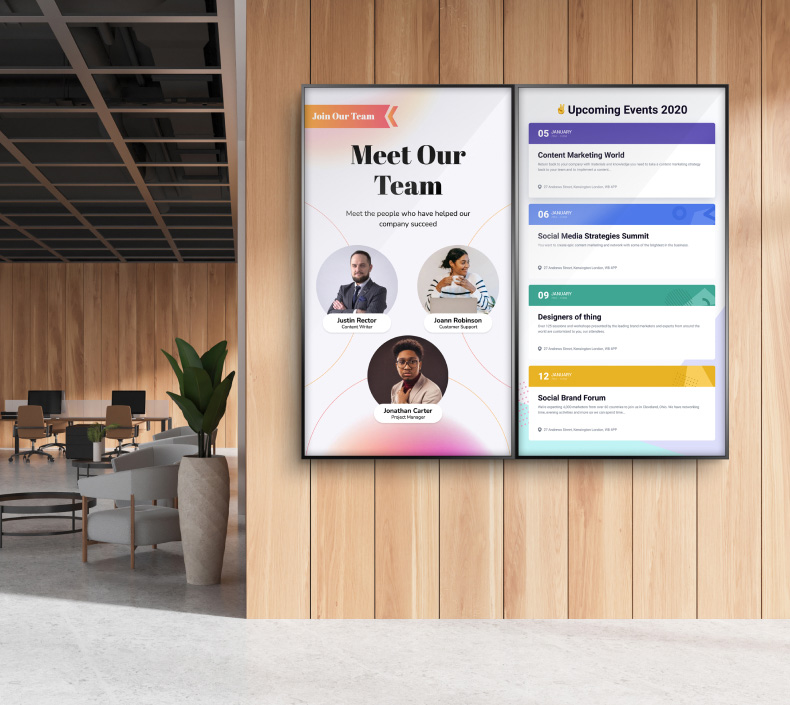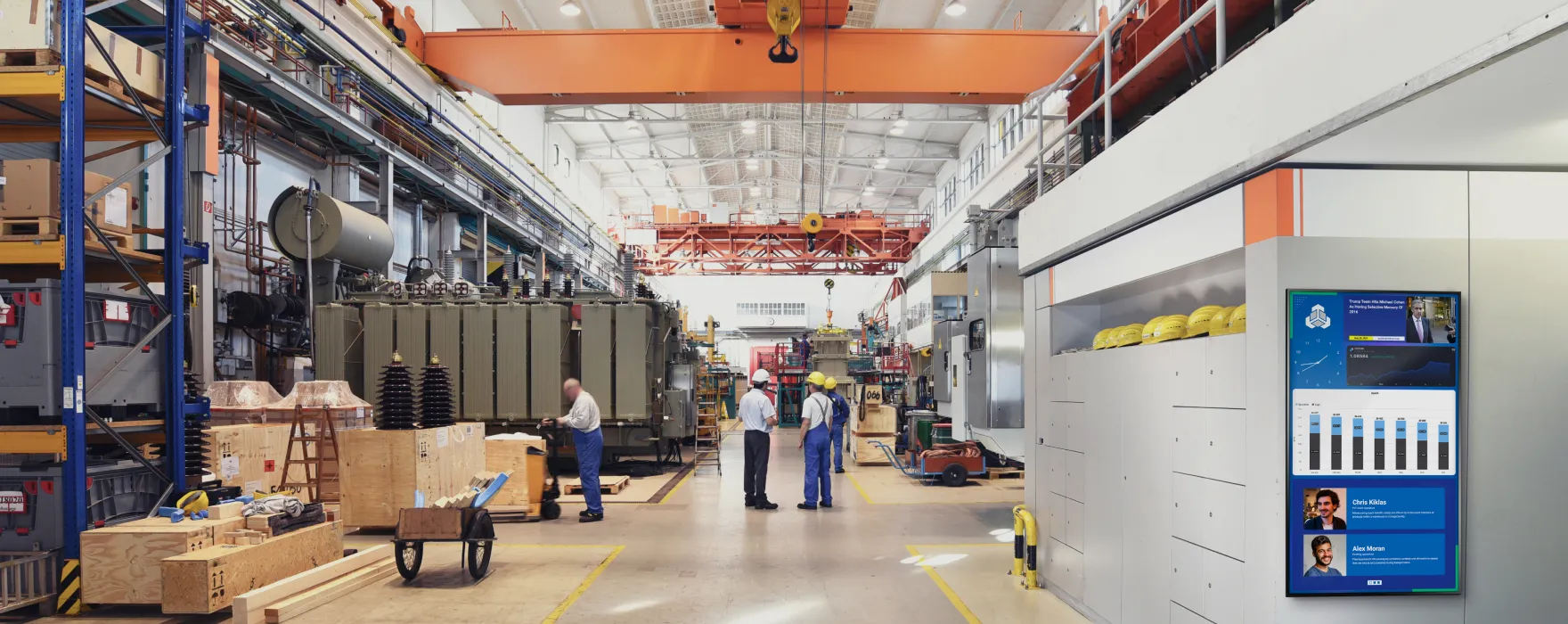How Interactive Kiosks Are Promoting Sustainability in Retail & Beyond
The green revolution is reshaping the landscape of various industries, emphasizing the importance of sustainability and eco-friendly practices. One notable innovation driving this shift is the use of interactive kiosks.
These digital kiosks are playing a crucial role in promoting sustainability across multiple sectors, including retail, hospitality, healthcare, and transportation. By integrating green technology and sustainable practices, interactive kiosks are helping businesses reduce their environmental impact and enhance operational efficiency.
Understanding Interactive Kiosks
Interactive kiosks are self-service terminals equipped with touchscreens and user-friendly interfaces. They provide a wide range of functions, from information dissemination and transaction processing to customer engagement and service automation. These kiosks are increasingly being adopted in retail stores, airports, hotels, and hospitals, offering a seamless and efficient way for customers to access services and information.
The primary functions of interactive kiosks include:
- Information Display: Providing customers with details about products, services, and directions.
- Transaction Processing: Enabling self-checkout, ticketing, and payment processing.
- Customer Engagement: Enhancing the shopping experience with interactive features and personalized content.
By leveraging digital technology, these kiosks reduce the need for human intervention and streamline various processes, contributing to greater efficiency and customer satisfaction.
Environmental Benefits of Interactive Kiosks
Interactive kiosks sustainability is a key aspect of their design and implementation. One of the most significant environmental benefits of these kiosks is the reduction in paper usage.

Traditional methods of providing information and conducting transactions often involve substantial amounts of paper, leading to deforestation and waste. Interactive kiosks, on the other hand, offer digital alternatives such as e-receipts and online forms, which help conserve natural resources and reduce waste.
According to a study, businesses that switched to digital receipts reduced their paper usage by 50% . "CVS estimates that in 2019, 58 million receipts were sent digitally and it reports that the digital option has saved 48 million yards of receipt paper - more than enough paper to circle the globe. In 2020, total paper savings rose to 90 million yards – enough to circle the globe twice."
Additionally, interactive kiosks are designed with energy-efficient technology, minimizing their overall energy consumption. Modern kiosks use LED displays, low-power processors, and energy-saving modes to operate efficiently while reducing their environmental footprint. This energy efficiency helps lower greenhouse gas emissions, contributing to the fight against climate change. The fact is, LED screens consume 75% less energy than traditional displays.
Sustainable Practices in Retail
Retail businesses are increasingly adopting interactive kiosks to implement sustainable practices and reduce their carbon footprint.
These eco-friendly kiosks offer several benefits that align with the goals of retail sustainability. For example, many retailers use kiosks to provide digital catalogs and product information, eliminating the need for printed materials. Research indicates that digital catalogs can reduce printing costs by 30% .
Interactive kiosks also play a vital role in efficient inventory management by offering real-time updates and analytics.
This helps retailers minimize overstock and reduce waste, fostering a more sustainable retail environment. Moreover, kiosks streamline the checkout process, reducing the reliance on physical cash registers and further cutting down on resource usage.
Key Sustainable Practices in Retail
- Digital catalogs and product information: Reduce the need for printed materials.
- Efficient inventory management: Minimize overstock and reduce waste.
- Streamlined checkout process: Decrease reliance on physical cash registers.
By integrating these sustainable retail solutions, businesses can enhance their environmental stewardship while improving operational efficiency and customer satisfaction.
Energy Efficiency
Energy-efficient technology is a hallmark of modern interactive kiosks. These kiosks are designed to operate with minimal energy consumption, making them an eco-friendly option for businesses. Key energy-efficient features of interactive kiosks include LED screens, low-power processors, and automatic power-saving modes.

LED screens consume less energy compared to traditional displays, while low-power processors ensure that the kiosks operate efficiently without draining excessive power.
Automatic power-saving modes activate during periods of inactivity, further conserving energy and reducing operational costs. By utilizing these energy-efficient technologies, interactive kiosks help businesses lower their carbon footprint and contribute to environmental sustainability.
Energy-Efficient Features of Interactive Kiosks
- LED screens: Consume 75% less energy than traditional displays .
- Low-power processors: Ensure efficient operation with minimal power usage.
- Automatic power-saving modes: Conserve energy during inactivity.
These features make interactive kiosks a smart choice for businesses looking to adopt energy-efficient technology and promote sustainability.
Waste Reduction
Interactive kiosks contribute significantly to waste reduction by offering digital alternatives to paper-based materials. One of the most effective ways they achieve this is through the use of digital receipts.
By providing customers with the option to receive receipts via email or mobile app, businesses can substantially reduce paper waste. A survey showed that 58% of consumers prefer digital receipts over paper ones .
Furthermore, interactive kiosks facilitate the delivery of digital information and promotional materials, eliminating the need for printed brochures and flyers. This not only conserves paper but also reduces printing and distribution costs. Additionally, kiosks enable efficient order processing and management, minimizing errors and reducing waste in the form of discarded products and packaging.
Waste Reduction Strategies
- Digital receipts: Substantially reduce paper waste.
- Digital information and promotions: Eliminate the need for printed materials.
- Efficient order processing: Minimize errors and reduce waste.
By implementing these waste reduction strategies, interactive kiosks support businesses in their efforts to operate more sustainably and efficiently.
Case Studies in Retail
Several retail businesses have successfully integrated interactive kiosks to promote sustainability. For instance, a major retail chain implemented kiosks to provide digital product information and self-service checkout options. This not only enhanced the customer experience but also reduced paper usage and energy consumption.
Another example is a leading grocery store chain that introduced interactive kiosks for efficient inventory management and digital signage.
These kiosks helped the store reduce overstock, minimize waste, and lower energy costs, showcasing the significant impact of eco-friendly kiosks on retail sustainability. According to the chain, they saw a 20% reduction in waste after implementing digital kiosks .
Successful Retail Implementations
- Digital product information: Enhances customer experience and reduces paper usage.
- Self-service checkout: Decreases energy consumption and operational costs.
- Efficient inventory management: Reduces overstock and minimizes waste.
These case studies demonstrate the practical benefits of incorporating interactive kiosks into retail operations to achieve sustainability goals.
Beyond Retail: Other Industries Adopting Green Kiosks
Interactive kiosks are not limited to the retail industry; they are also being adopted in other sectors to promote sustainability. In the hospitality industry, kiosks are used for check-in and check-out processes, reducing the need for paper-based forms and improving efficiency.
Similarly, transportation hubs utilize kiosks for ticketing and information services, minimizing paper waste and streamlining operations.
The healthcare sector is another area where interactive kiosks are making a difference. Hospitals and clinics use kiosks for patient check-in, appointment scheduling, and information dissemination. These eco-friendly kiosks help reduce paper usage and enhance the overall patient experience.
Industry Applications
- Hospitality: Streamlined check-in and check-out processes.
- Transportation: Efficient ticketing and information services.
- Healthcare: Patient check-in, appointment scheduling, and information dissemination.
These applications highlight the versatility of interactive kiosks and their potential to promote sustainability across various industries.
Challenges and Solutions
Despite the numerous benefits, there are challenges in the widespread adoption of interactive kiosks. One of the main challenges is the initial cost of installation and maintenance. However, the long-term savings in energy and resource costs often offset these initial expenses.
Another challenge is ensuring the accessibility and usability of kiosks for all customers. Businesses must invest in user-friendly designs and regular maintenance to ensure that kiosks are accessible to people with disabilities and those who are not tech-savvy.
Overcoming Challenges
- Initial costs: Long-term savings in energy and resource costs.
- Accessibility: Invest in user-friendly designs and regular maintenance.
By addressing these challenges, businesses can fully realize the benefits of interactive kiosks and promote sustainability effectively.
Future Trends in Sustainable Kiosk Technology
Emerging trends and innovations in kiosk technology promise to further enhance sustainability efforts. For example, solar-powered kiosks are being developed to reduce reliance on traditional energy sources.

Additionally, advancements in touchless technology and artificial intelligence (AI) are improving the efficiency and user experience of kiosks.
These future trends in sustainable kiosk technology are expected to drive further adoption and innovation, making interactive kiosks an even more integral part of the green revolution.
Emerging Innovations
- Solar-powered kiosks: Reduce reliance on traditional energy sources.
- Touchless technology: Enhance efficiency and user experience.
- Artificial intelligence: Improve kiosk functionality and sustainability.
These innovations represent the next steps in the evolution of interactive kiosks, offering even greater environmental benefits and operational efficiencies.
Embracing the Green Revolution with Interactive Kiosks
Interactive kiosks are playing a pivotal role in promoting sustainability across various industries. From reducing paper waste and energy consumption to enhancing operational efficiency, these digital kiosks offer numerous environmental benefits.
As businesses continue to adopt green technology and sustainable practices, interactive kiosks will remain a key component of the green revolution.
By embracing interactive kiosks and supporting sustainable initiatives, businesses can contribute to a more sustainable future and make a positive impact on the environment. It's time to consider the environmental benefits of interactive kiosks and integrate these eco-friendly solutions into our operations for a greener tomorrow.







